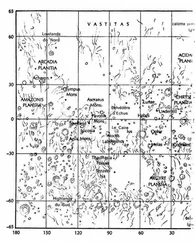Kim Robinson - Blue Mars
Здесь есть возможность читать онлайн «Kim Robinson - Blue Mars» — ознакомительный отрывок электронной книги совершенно бесплатно, а после прочтения отрывка купить полную версию. В некоторых случаях можно слушать аудио, скачать через торрент в формате fb2 и присутствует краткое содержание. Год выпуска: 1996, ISBN: 1996, Издательство: Spectra/Bantam Dell/Random House, Жанр: Космическая фантастика, на английском языке. Описание произведения, (предисловие) а так же отзывы посетителей доступны на портале библиотеки ЛибКат.
- Название:Blue Mars
- Автор:
- Издательство:Spectra/Bantam Dell/Random House
- Жанр:
- Год:1996
- ISBN:0-553-10144-7
- Рейтинг книги:3 / 5. Голосов: 1
-
Избранное:Добавить в избранное
- Отзывы:
-
Ваша оценка:
- 60
- 1
- 2
- 3
- 4
- 5
Blue Mars: краткое содержание, описание и аннотация
Предлагаем к чтению аннотацию, описание, краткое содержание или предисловие (зависит от того, что написал сам автор книги «Blue Mars»). Если вы не нашли необходимую информацию о книге — напишите в комментариях, мы постараемся отыскать её.
Green Mars
The Martian Chronicles
Dune
Piblishers Weekly st
Blue Mars — читать онлайн ознакомительный отрывок
Ниже представлен текст книги, разбитый по страницам. Система сохранения места последней прочитанной страницы, позволяет с удобством читать онлайн бесплатно книгу «Blue Mars», без необходимости каждый раз заново искать на чём Вы остановились. Поставьте закладку, и сможете в любой момент перейти на страницу, на которой закончили чтение.
Интервал:
Закладка:
She was smiling. Again it was some other Ann. “You can climb with me if you want.”
“I’m not a climber.”
“We’ll go up an easy route. Up Wang’s Gully, and over the great circle to north circle, I’ve wanted to get up there while it’s still summer anyway.”
“It’s Ls 200, actually. But I mean, it sounds good.” His heart was beating at about 150 beats a minute.
Ann had all the equipment they needed, it turned out. The next morning, as they were suiting up, she said to him, “Here, take that off.” Pointing at his wristpad.
“Oh dear,” Sax said. “I — isn’t it really part of the suit’s system?”
It was, but she shook her head. “The suit is autonomous.”
“Semiautonomous, I hope.”
She smiled. “Yes. But no wristpad is necessary. Look — that thing connects you to the whole world. It’s your manacle to spacetime. Today let’s just be in Wang’s Gully. It will be enough.”
It was enough. Wang’s Gully was a broad weathered chute, cutting up through steeper cliff ridges like a giant shattered culvert. Most of the day Sax followed Ann up smaller gullies within the body of this larger one, scrambling up waist-high steps, using his hands most of the time, but seldom with the feeling that a fall would kill him, or do much more than sprain an ankle. “This isn’t as dangerous as I thought it would be,” he said. “Is this the kind of climbing you always do?”
“This isn’t climbing at all.”
“Ah.”
So she went up slopes steeper than this. Taking risks that were, strictly speaking, unjustifiable.
And indeed, in the afternoon they came to a short wall, cut by horizontal fissures; Ann began to climb it, without ropes or pitons, and gritting his teeth, Sax followed. Near the top of a geckolike ascent, with his boot tips and gloved fingers all jammed into small cracks, he looked back down Wang’s Gully, which suddenly seemed very much steeper in its entirety than it had in any given section, and all his muscles began to quiver with some kind of fatigued excitation. Nothing for it but to finish the pitch; but he had to risk his position time after time as he hurried higher, the holds getting slimmer just as he was becoming of necessity hastier. The basalt was very slightly pitted, its dark gray tinged rust or sienna; he found himself hyperfocused on one crack over a meter above his eye level; he was going to have to use that crack; was it deep enough for his fingertips to gain any purchase? He had to try to find out. So he took a deep breath and reached up and tried, and as it turned out it was not really deep enough at all; but with a quick pull, groaning involuntarily at the effort, he was up and past it, using holds he never even consciously saw; and then he was on his hands and knees next to Ann, breathing very heavily. She sat serenely on a narrow ledge.
“Try to use your legs more,” she suggested.
“Ah.”
“Got your attention, did it?”
“Yes.”
“No memory problems, I trust?”
“No.”
“That’s what I like about climbing.”
Later that day, when the gully had lain back a bit, and opened up, Sax said, “So have you been having memory problems?”
“Let’s talk about that later,” Ann said. “Pay attention to this crack here.”
“Indeed.”
That night they lay in sleeping bags, in a clear mushroom tent big enough to hold ten. At this altitude, with its su-perthin atmosphere, it was impressive to consider the strength of the tent fabric, holding in 450 millibars of air with no sign of untoward bulging at any point; the clear material was nice and taut, but not rock hard; no doubt it was holding many bars of air less than would test its holding capacity. When Sax recalled the meters of rock and sandbags they had had to pile on their earliest habitats to keep them from exploding, he couldn’t help but be impressed by the subsequent advancements in materials science.
Ann nodded when he spoke of this. “We’ve moved beyond our ability to understand our technology.”
“Well. It’s understandable, I think. Just hard to believe.”
“I suppose I see the distinction,” she said easily.
Feeling more comfortable, he brought up memory again. “I’ve been having what I call blank-outs, where I can’t remember my thoughts of the previous several minutes, or up to say an hour. Short-term-memory failures, having to do with brain-wave fluctuations, apparently. And the long-term past is getting very uncertain as well, I’m afraid.”
For a long time she didn’t reply, except to grunt that she’d heard him. Then:
“I’ve forgotten my whole self. I think there’s someone else in me now. In partway. A kind of opposite. My shadow, or the shadow of my shadow. Seeded, and growing inside me.”
“How do you mean?” Sax said apprehensively.
“An opposite. She thinks just what I wouldn’t have thought.” She turned her head away, as if shy. “I call her Counter-Ann.”
“And how would you — characterize her?”
“She is … I don’t know. Emotional. Sentimental. Stupid. Cries at the sight of a flower. Feels that everyone is doing their best. Crap like that.”
“You weren’t like that before, at all?”
“No no no. It’s all crap. But I feel it as though it’s real. So… now there’s Ann and Counter-Ann. And… maybe a third.”
“A third?”
“I think so. Something that isn’t either of the other two.”
“And what do you — I mean, do you call that one anything?”
“No. She doesn’t have a name. She’s elusive. Younger. Fewer ideas about things, and those ideas are — strange. Not Ann or Counter-Ann. Somewhat like that Zo, did you know her?”
“Yes,” Sax said, surprised. “I liked her.”
“Did you? I thought she was awful. And yet… there’s something like that in me as well. Three people.”
“It’s an odd way to think of it.”
She laughed. “Aren’t you the one who had a mental lab that contained all your memories, filed by room and cabinet number or something?”
“That was a very effective system.”
She laughed again, harder. It made him grin to hear it. Though he was frightened too. Three Anns? Even one had been more than he could understand.
“But I’m losing some of those labs,” he said. “Whole units of my past. Some people model memory as a node-and-network system, so it’s possible the palace-of-memory method intuitively echoes the physical system involved. But if you somehow lose the node, the whole network around it goes too. So, I’ll run across a reference in the literature to something I did, for instance, and try to recall doing it, what methodological problems we had or whatever, and the whole, the whole era will just refuse to come to me. As if it never happened.”
“A problem with the palace.”
“Yes. I didn’t anticipate it. Even after my — my incident — I was sure nothing would ever happen to my ability to — to think.”
“You still seem to think okay.”
Sax shook his head, recalling the blank-cuts, the gaps in memory, thepresque vus as Michel had called them, the confusions. Thinking was not just analytical or cognitive ability, but something more general… He tried to describe what had been happening to him recently, and Ann seemed to be listening closely. “So you see, I’ve been looking at the recent work being done on memory. It’s gotten interesting — pressing, really. And Ursula and Marina and the Acheron labs have been helping me. And I think they’ve worked out something that might help us.”
“A memory drug, you mean?”
“Yes.” He explained the action of the new anamnestic complex. “So. My notion is to try it. But I’ve become convinced that it will work best if a number of the First Hundred gathered at Underbill, and take it together. Context is very important to recollection, and the sight of each other might help. Not everyone is interested, but a surprising number of the remaining First Hundred are, actually.”
Читать дальшеИнтервал:
Закладка:
Похожие книги на «Blue Mars»
Представляем Вашему вниманию похожие книги на «Blue Mars» списком для выбора. Мы отобрали схожую по названию и смыслу литературу в надежде предоставить читателям больше вариантов отыскать новые, интересные, ещё непрочитанные произведения.
Обсуждение, отзывы о книге «Blue Mars» и просто собственные мнения читателей. Оставьте ваши комментарии, напишите, что Вы думаете о произведении, его смысле или главных героях. Укажите что конкретно понравилось, а что нет, и почему Вы так считаете.












